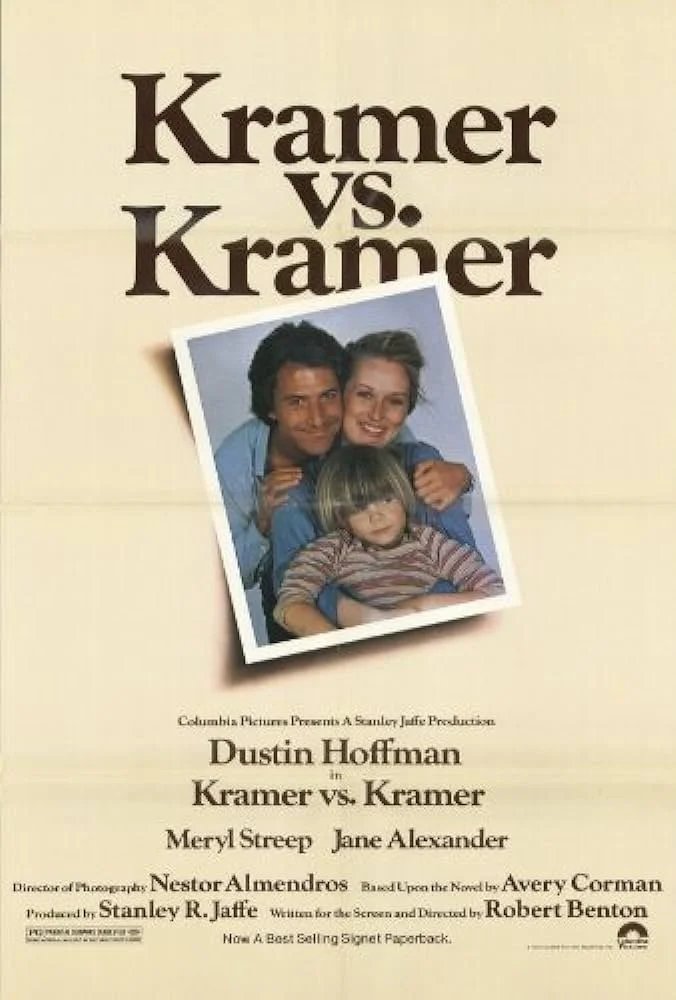Charter and Kramer Vs. Kramer Film Review
Make it stand out
Whatever it is, the way you tell your story online can make all the difference.
Is a mother obligated to sacrifice her identity, her bodily autonomy, to keep her family intact? Alice, the protagonist of Amanda Kernell’s second feature “Charter” (2020), would answer an unapologetic no. As the film opens, Alice (Ane Dahl Torp) has already left her controlling husband Mattias (Sverrir Gudnason) and is engaged in a hostile custody battle. In addition, Alice endures the unique opprobrium attached to a woman who has “abandoned” her two children.
After a troubling phone call from her son, Alice returns to the stifling, snow-covered village where her husband lives. The self-righteous residents shun Alice for having fallen out-of-love with Mattias and in love with someone else. Alice is also reprimanded by the social worker assigned to her case, particularly for relocating to Stockholm for employment. She is condescendingly told, “You have to put your own feelings aside once you have children.”
Alice is still emotionally attached to her offspring, though. Because she acts impulsively and manages the fallout afterward, Alice spirits her two children away to the island resort of Tenerife. When the ex-husband tracks her down, an insecure Alice asks her children “who would you choose – your father or me?” It’s a traumatizing experience for the kids who are unable to reply.
Filmmaker Kernell does not downplay Alice’s faults. The script also illustrates the lopsided power dynamics operating within the family. After the “kidnapping” occurs, teenage daughter Elina (Tintin Poggats Sarri) discovers her power to manipulate. Whenever Alice attempts to discipline Elina or discuss Elina’s self-harm issues, Elina threatens to call her father and disclose their location. Ultimately, the children return to their father, and legal guardian, but Alice has won a victory. She re-establishes the maternal bond with her son and daughter.
While Alice takes extralegal measures to reunite with her children, the mother in the Oscar-winning drama “Kramer vs. Kramer” (1979) uses the court system to win sanctioned custody of her child. The film holds up well, in part because writer-director Robert Benton handles his material in a manner similar to Amanda Kernell. Both filmmakers use non-diegetic music sparingly and keep pop culture references to a minimum, thereby ensuring a timeless quality to the films. Also, neither director romanticizes their settings. Tenerife is not photographed as a picture-postcard island getaway in “Charter” and New York City at Christmastime is not portrayed as a neon-lighted amusement park in “Kramer vs. Kramer”.
At the time of its release, “Kramer vs. Kramer” was denigrated by some for its ending. Although Joanna (Meryl Streep) wins custody of her son, she chooses to allow Billy to continue living with his father (Dustin Hoffman). She does have a line of dialogue though, during the court scenes, which could just as easily be spoken by Alice in “Charter”: “Just because I needed a creative or emotional outlet other than my child, that didn’t make me unfit to be a mother.”
Although Hoffman’s character is far more sympathetic than Gudnason’s in “Charter”, both males are portrayed as having a narcissist inability to understand that their wives are rejecting them, not their children. At one point in “Kramer vs. Kramer”, Hoffman wails “How much courage does it take to walk out on your kid?” In “Charter”, Matthias tells Alice she is “sacrificing the kids” when she refuses to rekindle a sexual relationship with him. The films foreground two essential issues for the mother figures portrayed: how to maintain an independent identity and how to terminate a spousal relationship without alienating one’s child.
It may seem strange to inject the pop star Meatloaf into the conversation, but he is relevant. There is a karaoke scene in “Charter”. The song Alice chooses to sing with her children is Meatloaf’s hit “I’d Do Anything for Love (But I Won’t Do That)”. The anthem acquires new meaning in the context of Alice’s search for self-sufficiency.
Click here to watch Kramer vs. Kramer on Prime Video.
Content copyright © 2024 by Angela K. Peterson. All rights reserved.
This content was written by Angela K. Peterson. If you wish to use this content in any manner, you need written permission.


